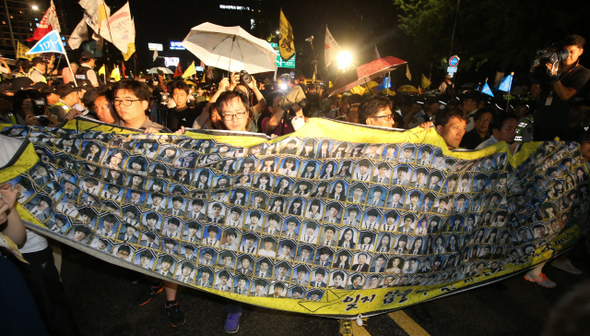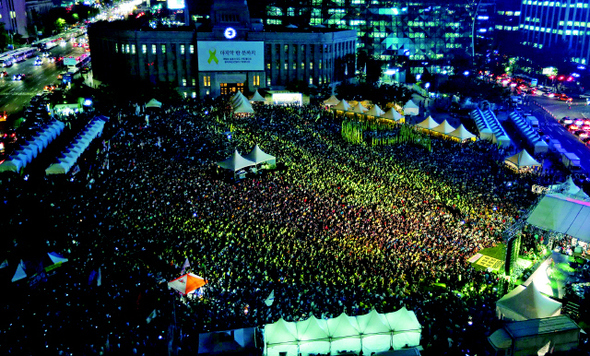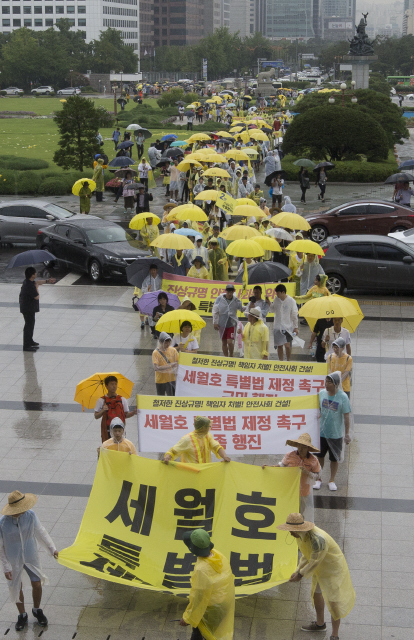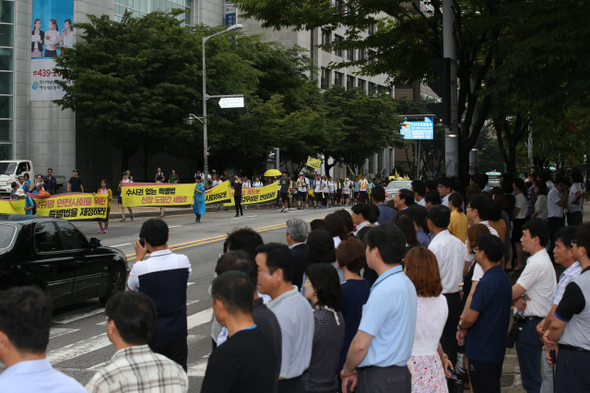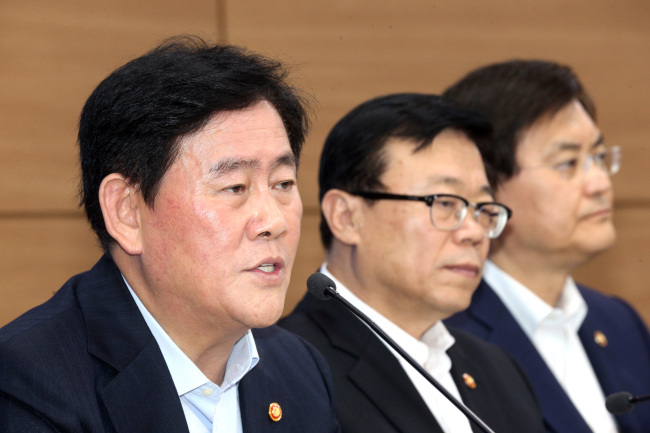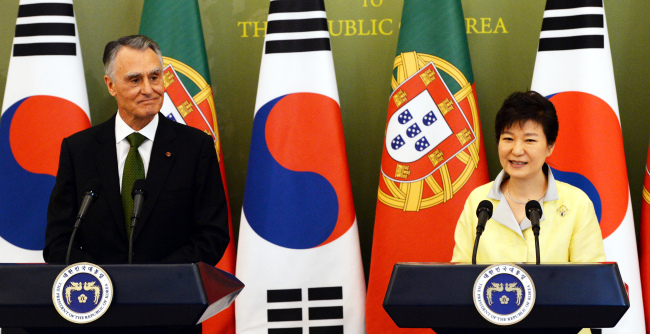South Korea split its two first-day matches with Australia on the opening day of the inaugural international competition on the LPGA Tour on Thursday in Maryland.
The team of Park In-bee and Ryu So-yeon defeated the duo of Katherine Kirk and Lindsey Wright 3 & 2 in their four-ball match at the International Crown on Caves Valley Golf Club in Owings Mills, a suburb of Baltimore.
In the next match, Australia’s Karrie Webb and Lee Min-jee edged past Choi Na-yeon and Kim In-kyung 2-up.
The first edition of the International Crown features the four highest-ranked players from eight countries, based on their world rankings on March 31.
The four-day competition will feature three days of four-ball matches and one day of single matches. Two points will be awarded per victory and one point will be given for a halve.
 |
| Park In-bee follows her tee shot on the fifth hole during the first round of the International Crown in Owings Mills, Maryland, Thursday. (AFP-Yonhap) |
The top two countries from each pool plus the fifth, wild card country will play in the singles matches on Sunday.
For the singles, the countries will be re-seeded based on their points from the four-ball matches. The inaugural champion will be crowned based on the total points accumulated from Thursday to Sunday.
For South Korea, Park, currently No. 3, is joined by No. 9 Ryu, No. 18 Choi and No. 23 Kim. At the time of the team selection, Park was still the top-ranked player, while Ryu was in sixth place, Choi in 11th and Kim in 15th.
Park and Ryu led 1-up after the birdie on the opening hole and doubled the lead with a birdie on the par-3 third hole. The Australians answered right back with a birdie of their own on the par-5 fourth, but it was as close as they got on this day.
After the teams traded a birdie apiece on the seventh and the eighth, the South Koreans led 2-up again with a birdie on the ninth, and then went up by three holes with another birdie on the 10th.
Australia cut the deficit by one with a birdie on the 11th, but South Korea’s eagle on the par-5 12th restored a 3-up lead that it never relinquished.
Webb and Lee overcame an early deficit to salvage two points for Australia in the second match. Choi and Kim also opened their day with a birdie but lost the lead with a bogey on the par-4 fifth, where Australia managed a par.
The Aussies took the lead with a birdie on the next hole.
Another birdie on the 10th put them up by two holes. Webb and Lee clung to a 1-up lead heading into the final hole and clinched the victory with a birdie on the par-4 18th.
Lee, whose parents were born in South Korea, is the No. 1-ranked amateur and is the only amateur in the field this week.
The eight countries have been divided into two pools. The United States, as the top seed, is in Pool A along with Thailand, Spain and Taiwan. South Korea, the No. 2 seed, ended up in Pool B with Japan, Sweden and Australia.
The South Koreans will face Sweden on Friday and Japan on Saturday.
Japan leads Pool B with three points after beating Sweden in one match and halving another with the Europeans.
Elsewhere, Taiwan stunned the top-seeded Americans and took both of the four-ball matches to take an early lead in Pool A.
Candie Kung and Teresa Lu crushed Paula Creamer and Cristie Kerr 4 & 3. Then former world No. 1 Yani Tseng and Phoebe Yao defeated the current No. 1 Stacy Lewis and Lexi Thompson 1-up.
In the other Pool A match Thursday, Spain and Thailand halved their first match and Spain prevailed in the second one. (Yonhap)
